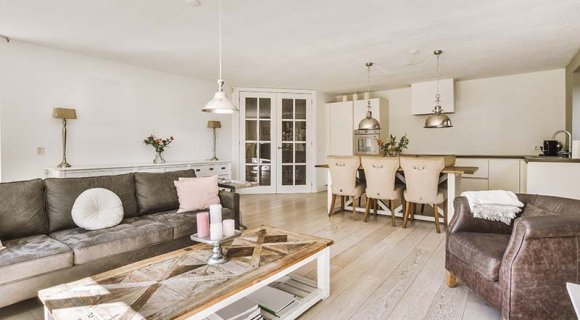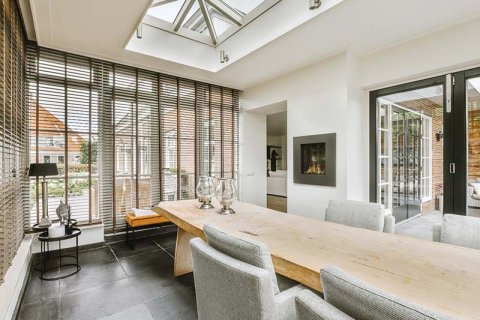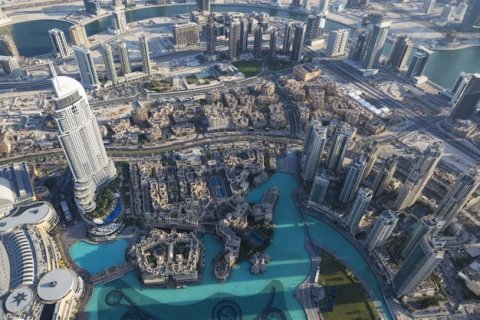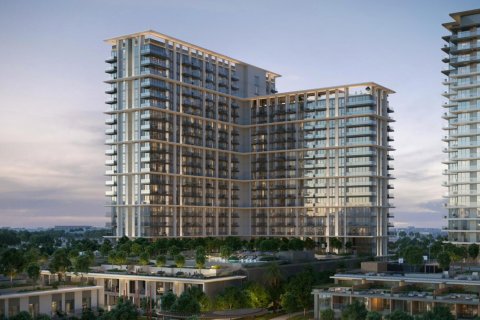
In recent months, Dubai's residential real estate market has been increasingly favouring sellers. Already, thousands of people are planning to sell their assets, banking on the colossal price growth that has exceeded 200% since the beginning of 2020. Many industry insiders point out that the property price growth is showing signs of slowing down, with a possible trend shift by mid-year. Such forecasts have been regularly made over the past year, and more people are deciding not to delay the sale of their property. The proceeds from these sales are mostly planned to be reinvested in more promising areas.
Content:
A year of market growth
According to CBRE data, in the fourth quarter of 2023, activity in the UAE real estate market remained high, with growth observed across all segments. However, the successful year passed not only for Dubai and Abu Dhabi. The northern emirates of the country, namely Sharjah, Ajman, and Ras Al Khaimah, also demonstrated high attractiveness among foreign buyers. But returning to Dubai, property prices in the city managed to surpass the previous historical record set in 2014.
In annual terms, housing prices in the emirate increased by 20.1% (as of the beginning of December 2023). Specifically, apartments rose by 19.8%, and villas by 21.8%. The number of property sales transactions increased by 29% compared to 2022, with over 118,000 deals concluded. The commercial real estate market also saw significant activity. For example, office rental rates in some areas of the emirate increased by more than 40% over the year.
What sellers are counting on
As mentioned above, property prices purchased at the beginning of the pandemic year grew by more than 200% by the beginning of 2024. One of the key advantages of the current market for sellers is the opportunity to earn significant income due to the high return on investment (ROI). Real estate in the emirates consistently provides an ROI of over 6%. Even in less popular northern emirates of the country, we see ROIs exceeding 9%.
As an example, we can take the Ajman Downtown district in the emirate of Ajman. Currently, the ROI for buying local apartments stands at 9.4% per year. In Dubai, the average fluctuates between 6–8%. Considering the intense population growth in the city, the consumer base is only expanding, as is the demand in conditions of limited housing access. Moreover, selling property in this emirate allows homeowners to avoid paying capital gains tax and property tax.
Reinvestment opportunities
In addition to the opportunity to profit from the situation, buyers receive funds for reinvestment. New areas are actively developing in the city, which promise to become new centres of attraction for expatriates. At this stage, these areas are only at the beginning of their development, making purchasing new real estate in them accessible and attractive, with abundant supply. Available data indicates that almost 69,000 new properties are expected to enter Dubai's housing market in 2024 alone.
It is expected that 22.7% of the new real estate will fall into the markets of areas such as Business Bay, District Seven, and Damac Lagoons. The rest will be placed in currently popular areas like Palm Jumeirah, but more and more will be built in new directions. This includes the development of areas such as Palm Jebel Ali, another artificial archipelago that returned to development in 2023 after a decade of hiatus.
Not all property owners plan to sell assets
Despite all this, there are still those who hold onto their property. This primarily refers to those who earn income from renting out their properties. Last year proved to be favourable for the rental market, with rates in many areas reaching new highs. For example, the Damac Hills area in 2023 demonstrated a year-on-year rental rate increase of 66.6%. High figures were also shown in areas like Dubailand (42.5%), JVC (32%), and Al Barsha (31%). This year promises to continue the trend, at least until autumn, so the benefits of participating in this market at the moment are extremely high.











































